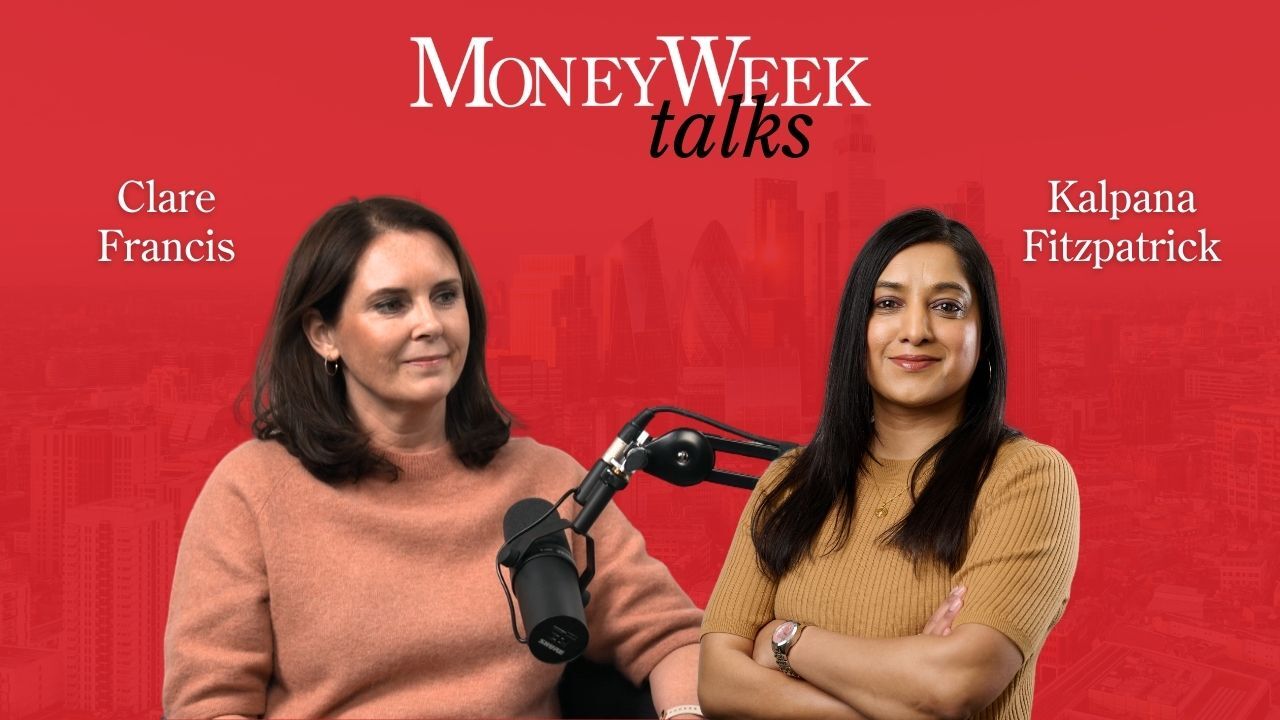Mid-term blues: it was the economy, stupid
When the news came in from America’s mid-term elections last week, the headlines were pretty clear on what had caused the Republicans’ heavy losses: the war. But that isn’t what the polls of voters really said.

Get the latest financial news, insights and expert analysis from our award-winning MoneyWeek team, to help you understand what really matters when it comes to your finances.
You are now subscribed
Your newsletter sign-up was successful
Want to add more newsletters?
When the news came in from America's mid-term elections last week, the headlines were pretty clear on what had caused the Republicans' heavy losses: the war. But that isn't what the polls of voters really said.
There is something else really beginning to bother the average American: the slow erosion of their standard of living. The US minimum wage is at its lowest level in real terms for 50 years, and 55% of people told one poll their wages weren't keeping up with inflation.
Why do US consumers have less money to spend?
Americans owe more money than ever before and have less discretionary disposable income than they have had for several decades. This probably didn't seem like that big a deal when house prices were still rising fast. Who cares about the odd dollar when you're making $50,000 a year just by owning a house, and when the banks will let you withdraw that equity to buy the flat-screen TV or 4x4 you can't afford on your salary alone?
Try 6 free issues of MoneyWeek today
Get unparalleled financial insight, analysis and expert opinion you can profit from.

Sign up to Money Morning
Don't miss the latest investment and personal finances news, market analysis, plus money-saving tips with our free twice-daily newsletter
Don't miss the latest investment and personal finances news, market analysis, plus money-saving tips with our free twice-daily newsletter
House prices aren't rising any more, though, and nor is mortgage equity withdrawal. The median price of a new single family home fell more than 9% in the 12 months to the end of September this year. Worse, just as in Britain, many mortgages taken out on short-term fixed rates a few years ago are being reset at higher levels. Suddenly, the fact that the average salary no longer really finances the average lifestyle has become horribly clear to the average American.
No wonder they feel a lingering sense of dissatisfaction most of the time. The headlines may tell us people voted against the war, but had the housing bust held off for a few more months would the Democrats have had quite so much to celebrate about?
Where has the money gone?
Still, the US economy has had a great run over the past few years, so if the money hasn't flowed into the pockets of the general population in the form of their wages, where has it gone? The short answer is into the hands of the already rich, and in particular America's shockingly overpaid chief executives. The median remuneration of the executives running America's biggest companies was more than $18m in 2005, with a large number taking home $100m-plus. Hollywood studio bosses aside, I wonder how many of them voted Democrat.
The money has also turned up as record corporate profits (which makes sense the less you pay the majority of your workers the better your profits are going to be). Third-quarter earnings from the S&P 500 companies look like they are going to be up more than 18% from last year, a performance that is even more impressive when you note they have been growing at double-digit rates for 18 straight quarters.
America's workers would probably like to think that, with profits looking so very good, they might soon see some more of their nation's wealth heading their way. But the odds of them getting their wishes granted in any big way are low. Not only are the ranks of shameless chief executives unlikely to be sympathetic, but profit growth is also unlikely to stay strong for very much longer anyway.
However, there is already evidence the economy is slowing (HSBC expects to see growth of less than 2% next year) and a close look at the earnings figures shows the very good numbers are not spread across the board instead they are skewed by the particularly good performance of the financial and energy sectors.
How are US equities performing?
The figures also show, as David Rosenberg of Merrill Lynch points out, that they have been flattered by share buybacks and comparisons with the third quarter of 2005, when earnings were depressed in the wake of hurricane Katrina. The consensus now is that by next year's second quarter earnings growth will have fallen to 6%-7%.
The bulls will tell you that this doesn't much matter. US equities are so cheap, they say, that they more than reflect the odds of any kind of slowdown over the next few years.
It is true that the US market is not expensive despite the fact that the indexes have made back most of the losses of the early 1990s, they still trade on an average price/earnings ratio of only 15 times. But that isn't cheap either, and if earnings stop growing it is going to look less cheap.
The same is true here, where the FTSE 100 is now trading at a five-year high. I keep thinking about putting new money into the markets now the summer is over, but I look at the recessionary risks in the US, at the likelihood of poor corporate-profit growth, and at rising inflation and interest rates on both sides of the Atlantic. Then I look at the fact that I can get 5.25% in a risk-free savings account and I just can't bring myself to invest in shares in any real volume.
I'm not alone in this. I hosted a round table last week and found most of the participants (mainly fund managers) to be quite bullish in their general outlook. But when I asked them to tell me precisely where they would invest at the moment, their lack of conviction suddenly showed no-one could genuinely say that there was one market they'd definitely buy over another, one sector they felt no investor should be without, or even point to just one must-have stock.
Often after a round table with a group of clever managers I leave itching to reorganise my own portfolio. I left that one wondering if I should move some of my savings out of First Direct and into one of the new Icesave.com accounts just to add a bit of diversification.
First published in The Sunday Times 12/11/06
Get the latest financial news, insights and expert analysis from our award-winning MoneyWeek team, to help you understand what really matters when it comes to your finances.

-
 The UK regions with the highest proportion of homes above the inheritance tax threshold
The UK regions with the highest proportion of homes above the inheritance tax thresholdHigh house prices are pushing more families into the inheritance tax trap across the country
-
 Are money problems driving the mental health crisis? MoneyWeek Talks
Are money problems driving the mental health crisis? MoneyWeek TalksPodcast Clare Francis, savings and investments director at Barclays, speaks about money and mental health, why you should start investing, and how to build long-term financial resilience.